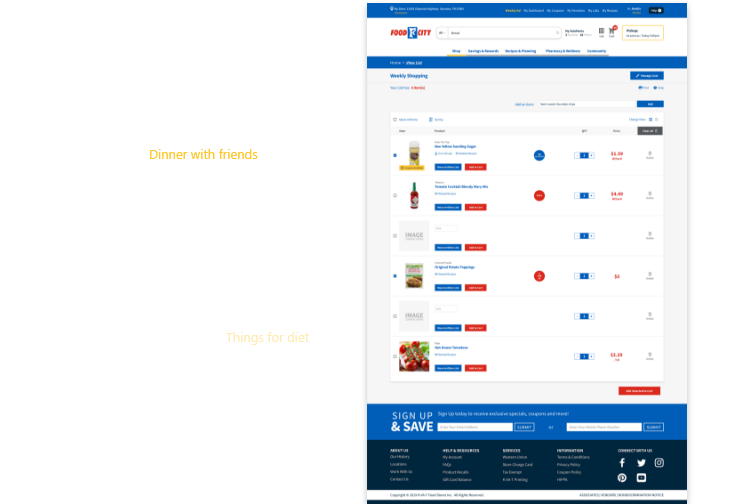
Wellness Club — Nutrition to Support Brain Health
Abingdon, VA. -
Tuesday, Oct 1, 2024.
Your brain needs good nutrition to support its high metabolic activity and neural functions. Consuming a nutrient rich diet can help prevent age-related declines in cognitive function.
Key Nutrients for Cognition:
Essential Fatty Acids
Nerve cell membranes are very rich in fatty acids, especially the long-chain omega-3 polyunsaturated fatty acid, DHA. Fish is a great source of omega-3, the type of fatty acid your body can’t produce, and it’s good for your brain. At least twice a week, eat five ounces of omega-3-rich fish, such as salmon, cod, or tuna. Fish isn’t your thing? Try walnuts, flaxseeds or soybeans instead.
Vitamin C
Neurons in the brain retain high concentrations of vitamin C. Eating a vitamin C-rich diet can have a protective effect against age-related cognitive decline. Vitamin C is also involved in the recycling vitamin E, another antioxidant that aids in the maintenance and protection of the brain. Vitamin C is found in citrus fruits, berries, bell pepper and sweet potatoes.
Vitamin D
Vitamin D influences the growth, development, and survival of neurons. Neurons are the fundamental system of processing and transmitting information from the brain to the rest of the body.
Regularly consuming egg yolks, cheese, or fatty fish, like salmon, swordfish and tuna can offer vitamin D. Many foods and supplements are fortified with vitamin D like dairy products and cereals. Vitamin D is a fat-soluble vitamin. Enjoying vitamin D rich food choices that contain fat or pairing with fat, like olive oil, can assist with absorption.
Flavanols
Flavanols give fruits and vegetables their bright colors. They are also found in tea and cocoa. Observational studies have shown that eating foods rich in flavanols is linked with less cognitive decline with aging. New research suggests that flavanols appear to improve blood flow to the brain. Some of the most studied foods sources of flavanols are green tea, berries, grapes, dark chocolate, and dark leafy greens.
Tips for including brain supporting nutrients:
- Mix up a smoothie that contains colorful plants to add antioxidants like vitamin C. Try mixing in a cup of dark leafy greens to offer more essential nutrients.
o Almond Cherry Berry Smoothie
- Feature fish at least two times per week, aim to include choices that provide essential fatty acids, like salmon. This quick meal option pairs fiber and nutrient rich sides for a sweet and savory dinner option.
o Sweet and Savory Salmon Bowl
- Add in flavanol rich foods in place of traditional sweet treats. This fresh take on trail mix features California grapes which provide polyphenols and antioxidants. Sub milk chocolate chips for dark chocolate bar or dark chocolate chips. Choose 70% dark chocolate or higher to obtain the most flavanols.












